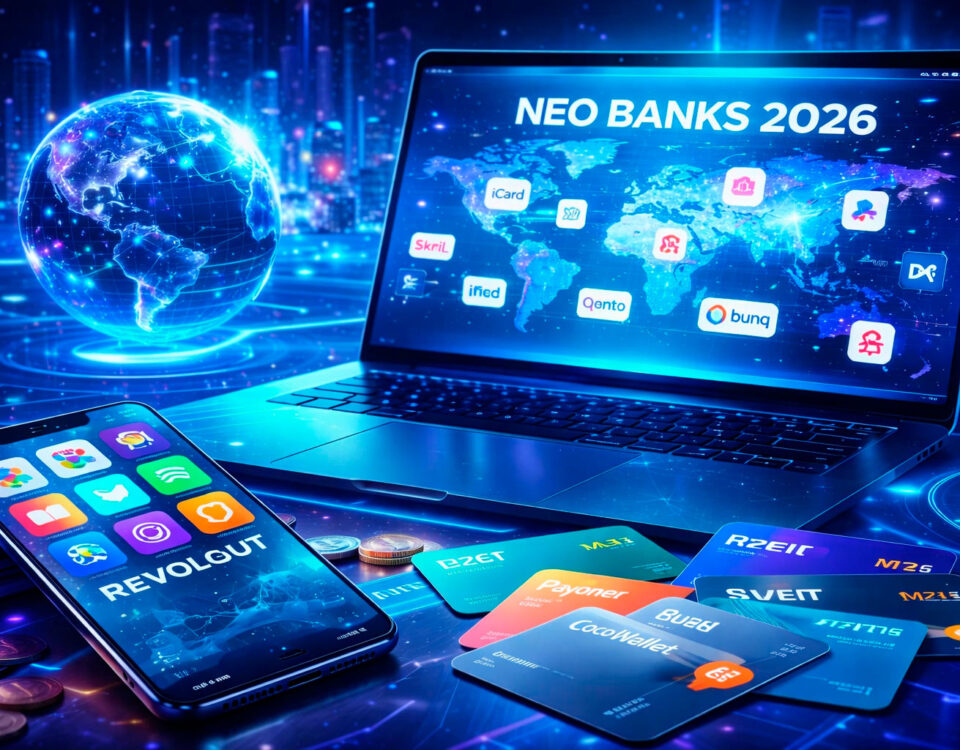
Towards an Offshore Financial Center in Margarita
26/12/2023
Crypto-friendly bank accounts
25/01/2024We explain the reasons and solutions for blocking accounts in online banks and digital wallets
In today’s financial world, blocking of accounts in online banks and digital wallets, including cryptocurrency wallets, is happening more and more. Online banks and digital wallets can block user accounts for various reasons.
Account blocking can be stressful and confusing. Understanding the reasons behind these blocks and seeking proper legal advice is crucial. Staying informed about financial regulations, complying with documentation requirements and, in cases of abuse, taking legal action, are essential steps to resolving these issues and maintaining a healthy relationship with financial institutions.
The main reasons for a blocking of accounts in online banks and digital wallets are:
1. Lack of Adequate Documentation
Blocking due to lack of proper documentation is common. Regulations require institutions to verify the identity of their customers (KYC). Without the necessary documentation, accounts can be suspended. But, under no circumstances can they keep your money.
Users must provide the required documents and in their absence produce exhaustive documentary information. A specialized law firm such as Caporaso & Partners can advise you on what documents are necessary and how to prepare them to comply with KYC requirements. In addition, in case of a dispute you will be able to prepare a complaint and support it legally.
2. Suspicious Activity
Suspicious activity blocks include unusual transactions or movement of funds to high-risk jurisdictions, which may trigger AML and CFT alerts.
In these cases, users must provide explanations and documentation for suspicious transactions. An international lawyer like Giovanni Caporaso Gottlieb, with expertise in banking, finance and cryptocurrencies can be crucial in a dispute, advising you on how to substantiate transactions and representing you before the financial institution.
3. KYC and AML Policy Abuse
A more complex situation is when a financial institution abuses its KYC and AML policies. In these cases, the institution may block accounts without valid justifications or exceeding the reasonable limits of its policies.
This situation requires a firmer intervention. A specialized attorney should contact the financial institution, demanding compliance with current regulations. If the institution does not respond adequately, the next step is to file a complaint with the appropriate Supervisory Institution. This action may require a detailed investigation and the presentation of evidence demonstrating the abuse of policies by the financial institution. It is a more difficult and lengthy process, but essential to protect the user’s rights and ensure a fair financial environment.
4. Basic rules for opening accounts in online banks and digital wallets
In the digital era, opening accounts in online banks and digital wallets has become a common practice. However, this process comes with certain challenges that users should carefully consider. Opening accounts in online banks and digital wallets is convenient, but requires caution. It is necessary to evaluate the institution’s license and reputation, quality of customer support and withdrawal policies before depositing a lot of money.
Diversifying accounts can provide an environment of financial security. Whereas, a thorough investigation of the financial institution and its reputation among users is critical to ensure a safe and satisfactory experience in the digital financial world.
Attorney Giovanni Caporaso Gottlieb recommends, before and after opening a bank account online or in a digital wallet, to comply with 5 basic rules, researching the financial institution.
1.Type of license of the financial institution
It is crucial to verify what type of license the financial institution holds and in which country. Licenses determine the scope of services they can offer and the regulations they are subject to. For example, some licenses allow cryptocurrency trading, while others do not. The lack of a proper license may indicate potential risks for users.
2. Institution’s reputation
The reputation of the financial institution is another important factor. Sites such as Trustpilot and other online forums can provide valuable information based on user experiences. Frequent complaints about withdrawal problems, poor customer service or security flaws should be taken seriously. An institution with many complaints could be an indication of operational or reliability problems.
3. Customer Support and Ease of Withdrawals
Before and after opening an account, it is advisable to investigate the level of customer support and withdrawal policies. It is important to know how and when you can access your money, especially in urgent situations. Institutions with poor customer support or complicated withdrawal policies can cause significant inconvenience.
4. Account diversification
A prudent strategy is not to put “all your eggs in one basket”. This means diversifying financial accounts. Having several accounts at different institutions can be a safeguard in case one account is blocked or the institution faces problems. This ensures that you will have access to funds in another account while you resolve any problems that arise.
5. Thorough research before opening an account
Conducting thorough research before opening an account is essential. This includes reviewing the institution’s license, security history, withdrawal policies and customer support. It is also advisable to read opinions and experiences of other users in forums and review sites, but keep in mind that your financial profile may be very different from another.






